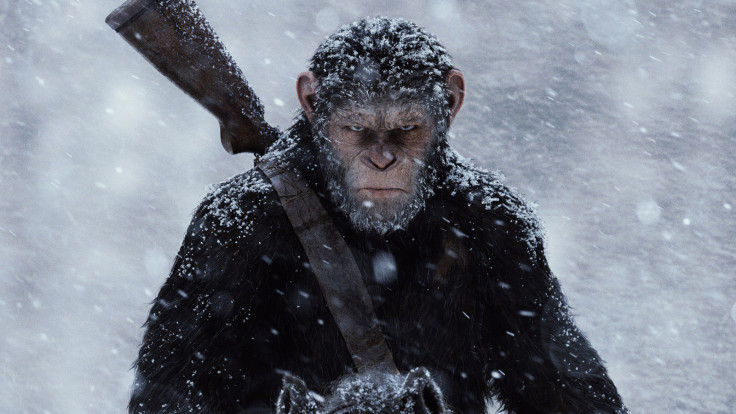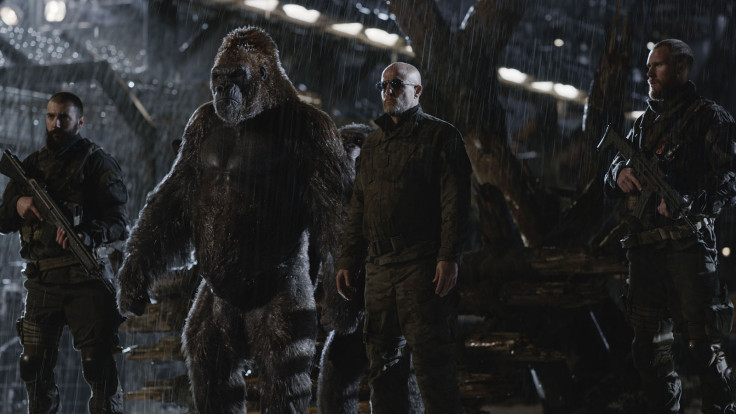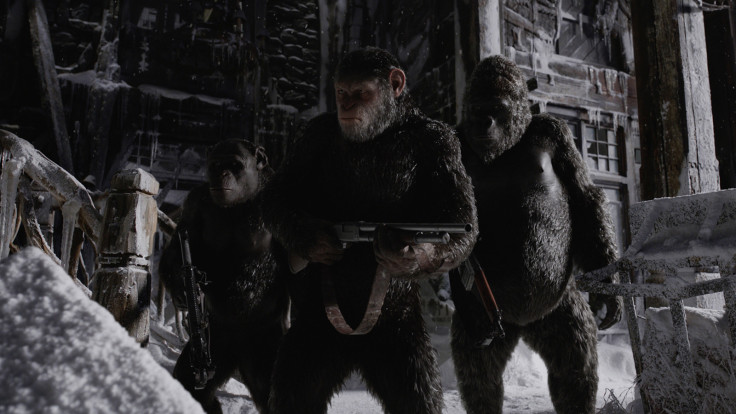War for the Planet of the Apes review: A riveting conclusion to a classic blockbuster trilogy
Andy Serkis dons his performance-capture suit to once again play revolutionary ape leader Caesar.

Outside Twentieth Century Fox and those making the film, you could have counted the number of people who believed a contemporary Planet of the Apes prequel was a good idea on one monkey mitt. It never should have worked.
Nonetheless Rise of the Planet of the Apes defied expectations and broke technological boundaries to tell a story richer in character and emotion than any other blockbuster vying for box office supremacy in the summer of 2011.
Andy Serkis was the star, bringing to life a young ape named Caesar: the world's first truly intelligent ape. Through performance capture the Lord of the Rings actor charted Caesar's arc from sheltered youngster to outcast adolescent to budding revolutionary.
And yet, Rise wasn't wholly successful. Serkis' star turn was magnificent and broke new ground, but most of the film's human stars disappointed with performances either phoned in or held back by a lack of faith in the performance capture tech at work.
It was with Matt Reeves' sequel, the very different Dawn of the Planet of the Apes, that the series found an identity that really worked. There was confidence in performance capture, and everyone working on the film rallied around it.
Rise ended with Caesar's intelligent apes breaking free of their human captors as a 'Simian Flu' began to spread across the world, killing humans in droves and causing society to crumble. Set 10 years later, Dawn's story masterfully dealt with the biggest obstacle facing the sequel: how do you make apes the sympathetic heroes in a film about the inevitable end of humanity?
The answer is a story full of characters who aren't heroes or villains, and who are stuck in tricky situations. Dawn's humans and apes just want to survive, but their coming together creates a delicate tension and conflict seems inevitable.
In the end it isn't a human that causes it, but an ape named Koba, driven by hatred for humankind.
War for the Planet of the Apes begins five years later, with an army of humans hunting Caesar down. The ape leader is his usual peaceful self, eager to avoid conflict unless absolutely necessary, and sends a message to the humans to this effect.

His message of peace falls on deaf ears, leading to a devastating attack the aftermath of which reveals a new side to Caesar. Driven by a burning hatred and aided by a small group of his closest allies, Caesar embarks on a mission to kill the ruthless colonel orchestrating the attacks on his kind.
War for the Planet of the Apes isn't the war movie you might expect. Instead it's part-western and part-biblical epic. Why biblical? Well, Caesar has long been destined to become a Moses-like figure in the history of intelligent ape-kind, and this film completes his legend, drawing unmistakable parallels as it does so.
It's also a character piece about Caesar and the colonel, who come to represent their respective species. The former is still learning the full breadth of his emotional range, seeing in himself the parts of Koba that drove the rogue ape to madness. The colonel, played by Woody Harrelson, represents the desperation and mania of mankind on the brink, the actor conveying this through a performance ripe with messianic bravado.
Exchanges between the two are fantastic, and serve as the best proof of Caesar's evolved language skills. His vocabulary has expanded rapidly since Dawn, the change helping bridge the gap between this trilogy and the future established in those original sci-fi classics.
One other ape that does talk readily is Steve Zahn's Bad Ape, an ape that has developed his level of intelligence separately from Caesar's clan, establishing the broader effects of the Simian Flu and hinting at the series' potential future.

Bad Ape (whose name comes from what zookeepers used to call him) brings an element of humour to the otherwise serious film. The light-hearted moments are infrequent, but well-timed to add welcome levity. One of the film's best gags comes shortly before the final set piece, and might just be the best joke in the whole trilogy.
Despite the wealth of things to praise about these films, it's important to recognise their biggest flaw. Rise, Dawn and War have all lacked substantive female roles. Freida Pinto's primatologist was woeful, Keri Russell was under-served by her character in the sequel and in War there's not a single major speaking role for a woman.
In part this is because the lead female character is mute. Amiah Miller's Nova is a young girl picked up by the apes as they embark on their journey, and her circumstances relate to a heartbreaking mystery, but it doesn't exactly rectify the sins of this series' past.
Matt Reeves does an exquisite job balancing tone and keeping a serious franchise about a ridiculous situation consistent and sincere. There might still be people who laugh at performance capture apes doing human-like things, but these films transcended this obvious silly factor a long time ago.
Of course seeing a chimp brandishing a shotgun or a gorilla riding a horse is fundamentally entertaining, but this series has done more than enough at this point to earn the suspension of its audience's beliefs.
Side note: will horses eventually overthrow their ape masters to create a planet of horses? I want to see those movies next.
Caesar's story has been an epic one reflecting, in his adoption of human traits, the best and worst of us. He's grown, changed, made mistakes, experienced loss, hatred and love. He also did his best to lead, instilling in the future dominant species on Earth values that will help them on their way even after he has gone.
He's also a computer-generated character, and for a story like that to have been told without sight of the astonishing actor beneath the pixels makes the success of this trilogy a historic feat in cinema history.
War for the Planet of the Apes is a epic and satisfying conclusion to one of modern cinema's best blockbuster trilogies. What started as a story nobody was interested in has, through intelligent filmmaking and incredible performances, proven to be one that was worth telling.
© Copyright IBTimes 2025. All rights reserved.






















